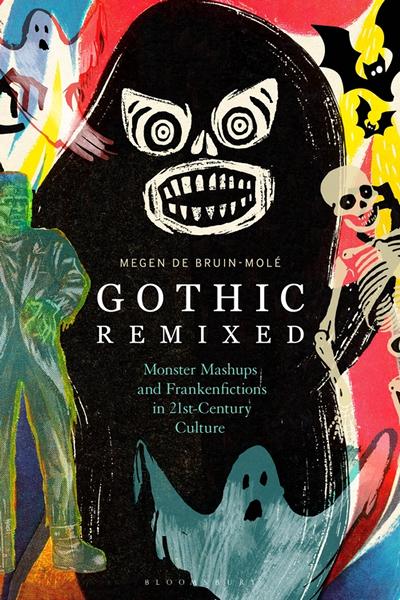Monsters are no longer outsiders thanks to ‘Frankenfiction’

The appeal of monsters has fascinated Dr Megen de Bruin-Molé throughout her life. Now, she’s turned that fascination into a book that explores the bestselling genre of ‘Frankenfiction’ where classic literature is turned into commercial narratives invaded by zombies, vampires, werewolves and other fantastical monsters.
In the book Gothic Remixed: Monster Mashups and Frankenfiction in 21st Century Culture, Dr de Bruin-Molé, Teaching Fellow at Winchester School of Art, University of Southampton, takes a multimedia approach to so-called ‘monster mashups’. Throughout the book, Dr de Brutin-Molé uses hybrid creations from film, television, comic books and other media to show how the thrill of transgression has been contained within safe and familiar formats resulting in the mashups that dominate Western popular culture.
Gothic Remixed explores the boundaries and connections between contemporary remix and related modes, including adaptation, parody, the Gothic, Romanticism, and postmodernism. Case studies range from works like Pride and Prejudice and Zombies and The Extraordinary Adventures of the Athena Club series, to television programmes such as Penny Dreadful, to popular visual artworks like Kevin J. Weir's Flux Machine GIFs.
“We have this idea of monsters as ‘others’ and as objects of cult fandom but actually in the last 10-20 years they’re not cult anymore but more mainstream,” Dr de Bruin-Molé explains. “I want people to think about what it means that monsters are now mainstream – is it even possible for a monster, which is inherently peripheral, to be mainstream? What do we do with that? What does that say about our contemporary culture?
“I also want to challenge some of the assumptions people have about the way stories work today,” she continues. “For example, one assumption is that all digital remixes work in a particular way, are revolutionary, and are not really interested in who the author is, but that’s not entirely true.
“Works like Pride and Prejudice and Zombies, for example, are very interested in who Jane Austen is and it’s successful because it’s a remix of Pride and Prejudice,” Dr de Bruin-Molé concludes. “It’s presenting itself in one way but relies on a lot of older ideas about originality, high art vs low art, and gender as well.”
Dr Megen de Bruin-Molé’s book Gothic Remixed: Monster Mashups and Frankenfiction in 21st Century Culture is published by Bloomsbury (ISBN 9781350103054).
